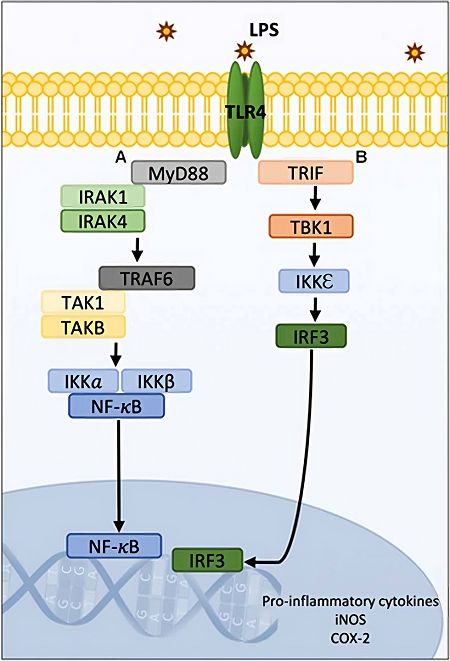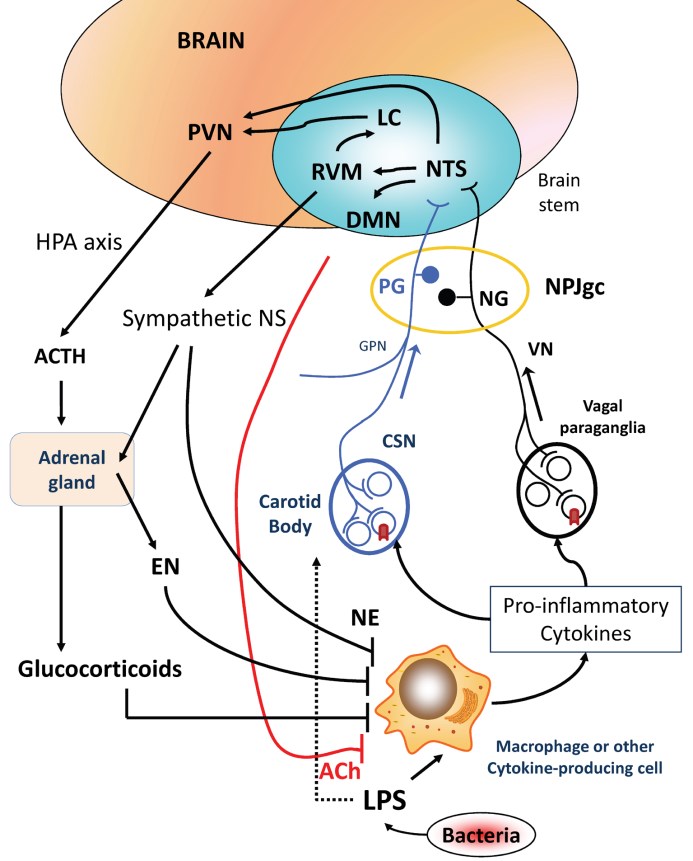With years of experience in IVD (in vitro diagnostic) antibody development, Creative Biolabs is able to provide a wide range of high-quality IVD antibody development services against numerous markers for the diagnosis of various diseases, conditions, or infections. Based on advanced technology and professional scientists, now we can provide a full range of IVD antibody development services against toll-like receptor 4 (TLR4) for the detection of sepsis.
Introduction of Toll-like Receptor 4
Toll-like receptor 4, also known as TLR4, is a protein encoded by the human TLR4 gene which belongs to the toll-like receptor family. As a transmembrane protein, TLR4 plays a fundamental role in pathogen recognition and activation of innate immunity. Since lipopolysaccharide (LPS) or endotoxin is a specific ligand for TLR4, it is able to recognize LPS and is required for the clearance of Gram-negative organisms. Moreover, TLR4 is involved in two major intracellular signaling pathways: MyD88-dependent and MyD88-independent pathway. MyD88 is a protein encoded by the MYD88 gene that functions as a universal adaptor protein to activate the transcription factor NF-kB. Activation of both signaling pathways results in the release of proinflammatory cytokines.
 Fig.1 TLR4 signaling pathways.1
Fig.1 TLR4 signaling pathways.1
Toll-like Receptor 4 Marker of Sepsis
Despite improved treatment options, sepsis still remains a major health challenge across the world in the past years. It has been reported that LPS, the major outer membrane component of gram-negative bacteria, is a potent inflammatory response stimulator which triggers inflammation in gram-negative sepsis. Importantly, TLR4 signaling pathway activation by LPS plays a major role in sepsis pathogenesis. Studies have suggested that single nucleotide polymorphisms (SNPs) of the TLR4 in humans have an association with increased susceptibility to Gram-negative bacterial infections or faster progression and a more severe course of sepsis. Furthermore, elevated TLR4 levels are correlated with worse outcome in severe sepsis patients. Under this condition, TLR4 can be used as a specific and sensitive marker for the detection of sepsis.
 Fig.2 Proposed model for neural reflex control of inflammation during sepsis syndromes (Luciano Azevedo., 2012)
Fig.2 Proposed model for neural reflex control of inflammation during sepsis syndromes (Luciano Azevedo., 2012)
IVD Antibody Development Services for TLR4 Marker
In recent years, IVD technologies are undergoing rapid development. IVD antibodies have been widely used in the diagnosis of numerous diseases including but not limited to sepsis. Antibody-based immunoassays are the most generally used diagnostic assays for the detection of biomolecules. With advanced technology and professional scientists, Creative Biolabs is capable of offering a full range of IVD antibody development services against various markers for global customers. In addition, Creative Biolabs provides one-stop diagnostic immunoassay development services, including feasibility analysis, assay design, assay protocol establishment, validation, and production.
For more details and information, please feel free to contact us and get a quote.
References
- Stojanovska, Vanesa, et al. "The consequences of preterm birth and chorioamnionitis on brainstem respiratory centers: implications for neurochemical development and altered functions by inflammation and prostaglandins." Frontiers in cellular neuroscience 12 (2018): 26. under Open Access license CC BY 4.0, without modification.
- Fernandez, Ricardo, and Claudio Acuña-Castillo. "Neural reflex control of inflammation during sepsis syndromes." Sepsis—An ongoing and significant challenge (2012): 133-156. under Open Access license CC BY 3.0, without modification.
For Research Use Only.